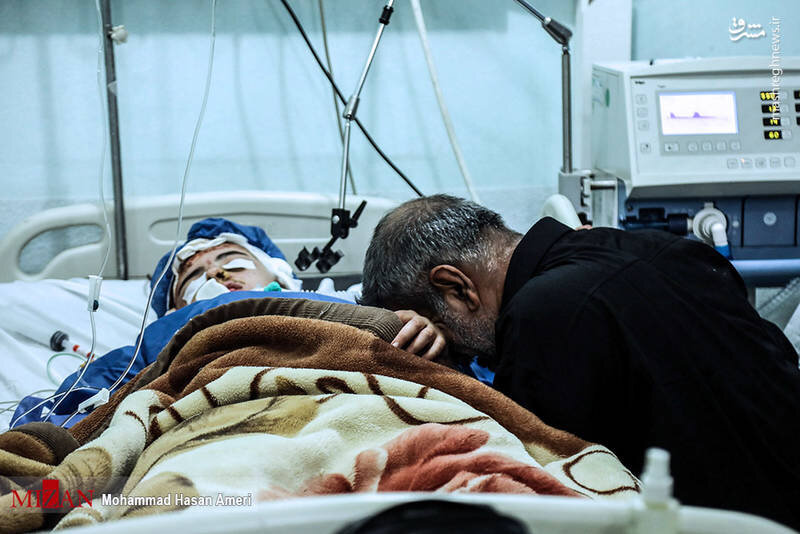What discourages people to save lives of those in need of organ transplant?

TEHRAN – While the lives of thousands of patients in Iran are currently hanging in the balance, waiting for a life-saving organ transplant, it remains a difficult task to convince the families of a brain dead patient to donate organs due to their cultural beliefs.
While last year (March 2018-March 2019), the rate of organ transplant was at its highest in the country, only 926 individuals donated their organs, while some 4,000 died of brain death which means only 25 percent of them donated their organs.
Currently some 25,000 individuals are in need of organ transplant in the country. However, if each brain dead patient on average donates 3 organs no one will remain on the waiting lists for organ transplant.
Mehdi Shadnoush, head of the transplantation and treatment of diseases department at the Ministry of Health, announced that organ donation rate has increased by 60 times over the past 18 years, though the growth is not considerable compared to the global scale; as some countries including China have grown 122-fold over the past 10 years.
According to the figures revealed by International Registry in Organ Donation and Transplantation (IRODaT), Spain leads the world in organ donation.
Figures published for 2017 reveal that 2,183 people in Spain became organ donors last year after they died. That’s 46.9 pmp – a standard way of measuring the rate of donation in a country, The Independent reported in July 2018.
According to the data published on IRODaT by the end of 2017, Iran’s per million population of actual deceased organ donors was 11.43. In 1996, Iran’s per million population of actual deceased organ donors was 0.1, which compared to the current per million people in the population (pmp) shows a great increase.
However, still some 10 patients, waiting for an organ, lose their lives daily in Iran, Masih Daneshvari hospital’s manager Ali Akbar Velayati said in May 2018.
But what really pushes away the people from donating their deceased beloved’s organ and save the lives of many?
It is a touchy question, some experts believe that there is a large disparity between the number of people who only claim that they support organ donation and the number of people who actually register for organ donation cards.
So, the factor keeping people from ultimately donating an organ is something that academics, doctors, and organ-donation activists are trying to figure out.
Although, for long we have heard that organ donation is a generous life-saving ‘gift’, some are still unnerved by and skeptical about the donation process.
Making positive decisions about organ donation would likely require resolving tensions between respecting family, community and religious values versus their individual autonomy.
Such resistance may be explained by the lack of awareness about transplantation within their communities, dominant influences of older family members, religious myths and misconceptions, fear of premature death, concerns about bodily disfigurement, distrust of the medical system, and concerns of racial discrimination in organ allocation.
Providing targeted education about the process and benefits of organ donation within the community may clarify ambiguities surrounding cultural and religious-based views on organ donation, reduce taboos and suspicion towards donation, and in turn, lead to increased organ donation rates.
Understanding the meaning of neurological death is also another factor helping families to consent for organ donation of their brain dead member of the family.
Neurological death is defined as ‘irreversible loss of capacity for consciousness combined with the irreversible loss of the capacity to breath’. It is a pre-requisite for donation, although to families the body still appears to have life.
Making families of the deceased aware of the fact that they can find a sense of meaning and creating a positive outcome of their tragic loss by organ donation is a must to promote the culture. Families should have a desire to help others and apprehend that the deceased’s legacy will continue to exist through donation.
A lack of trust in healthcare profession is also a major barrier to deceased organ donation; fears are mainly that doctors would not try as hard to save the life of an organ donor with physicians holding the power to decide whose life to save, as well as the belief that the wealthy are more likely to obtain a transplant.
How to increase organ donation in the communities?
However, to better understand the reasons for negativity towards deceased organ donation, researches by sociologists and ethnographers can play a key role.
To modify the negative attitudes associated with medical suspicion and religious ambiguity, media and educational campaigns at the community level can be useful.
To break down the cultural taboo and the need for protecting family and respecting the brain dead member may be achievable with trained and culturally designated organ donor requestors.
The community and government is to determine the means by which an individual can ‘own their decision’ about organ donation after their death.
FB/MG
